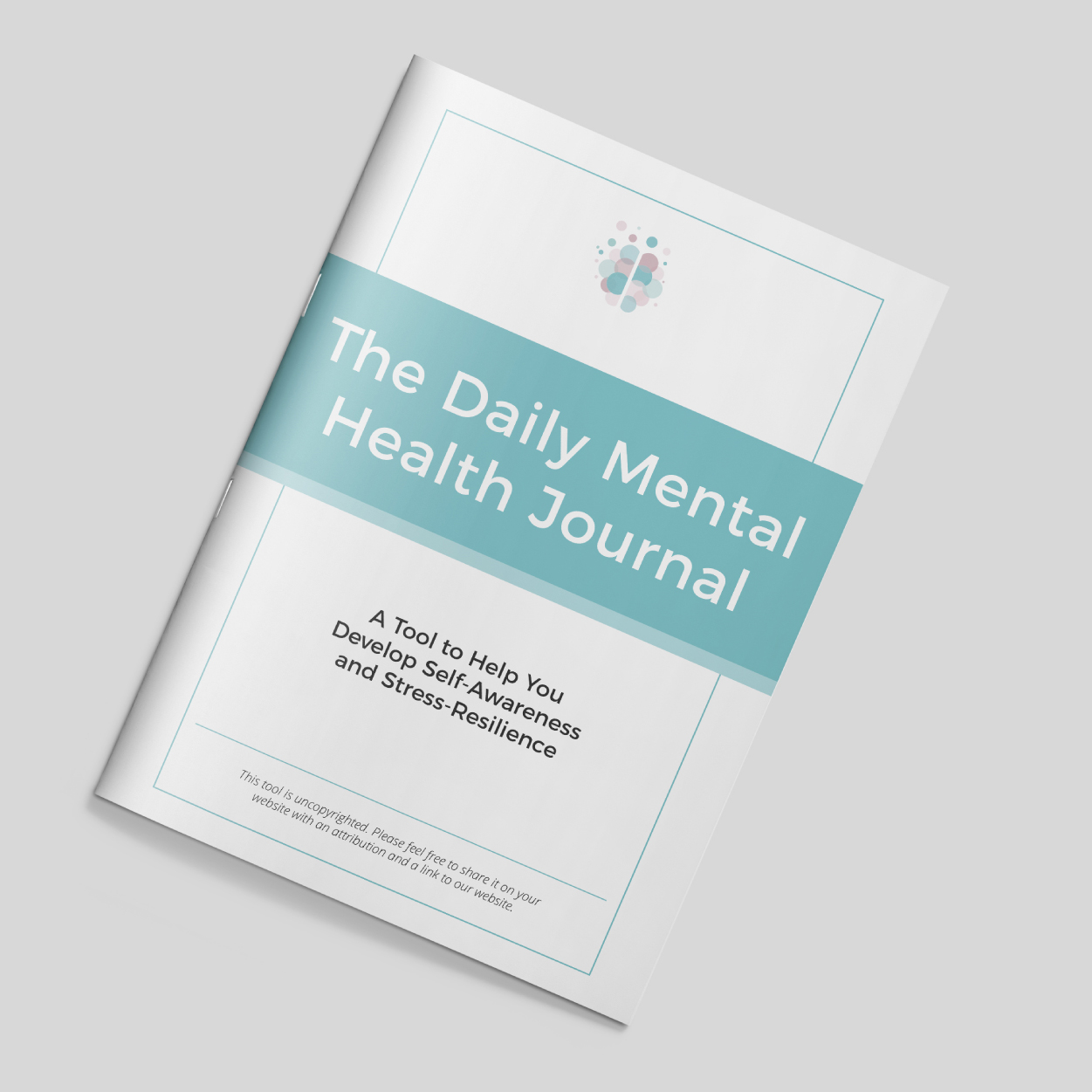
Looking for journal prompts for mental health?
We've got you covered!
The purpose of the journaling is to be able to identify and analyze your thinking, emotional and behavioral patterns, but also to find ways to adapt, change and manage them.
Journaling promotes self-awareness and self-understanding, as well as personal development, unconditional self-acceptance and goal achievement.
It can also help you release tension and bring clarity about the situation you’re in or the problem you’re facing.
Journaling can be used in many different ways and situations, but the one we’re addressing here is writing things down when you’re experiencing distress and challenging emotions.
4 Mental Health Journal Benefits
1. It Helps You Slow Down Your Thoughts
You cannot write as fast as you think. Writing can slow down your thoughts, helping you feel less overwhelmed by the number of thoughts you’re being flooded with.
2. It Helps Reduce Rumination
Rumination refers to the tendency to repeatedly focus your attention on distressing thoughts, mental images, stories, memories and emotions. You spiral deeper and deeper into repetitive cycles of mental suffering. This spiralling process impacts your mood, increases anxiety, and leads to uncomfortable physical sensations.
You may ruminate because you believe that if you keep analyzing things in detail - going over them again and again and again - you might find a solution or have a way to fix or change something. But this is rarely the case!
Rumination can be very intense and extremely difficult to get out of. By slowing down your thoughts, journaling helps you reduce this unhelpful thinking habit.
3. It Helps You Gain Clarity
Your thoughts can move extremely fast, and by deciding to write things down, you can choose what to pay attention to.
After you’ve finished writing, you can look at what you’ve written and decide what you want to do with what’s there. Remember: you don’t have to solve or manage every single thought right then and there.
Very often after looking at your written thoughts, you’ll find yourself thinking: “Yeah, I might be catastrophising here” and “That thought might not actually be true”. In this way, journaling helps you gain clarity and put things into perspective.
4. It Helps You Feel Calmer
After your journaling session, you can often feel that a burden has been taken off your shoulders. You have a clearer mind and a calmer body.
How to Use Journal Prompts For Mental Health
When you want to write, you can use the mental health journal template provided by our free PDF.
You can either:
- Journal in difficult moments
- Set aside 15 minutes every day to connect with your thoughts and emotions
In some situations, it’s easier or more efficient to write on your phone. For example, if you’re at work and have a difficult emotion, you can take a few minutes to write what’s going on. Later when you’re at home, you can focus on better understanding what caused that feeling and how you can manage it better next time.
When writing, your writing skills, grammar, and punctuation don’t matter. Try not to let these factors influence you.



Positive Journal Prompts for Mental Health
It’s also important to remember that you don’t just have to journal when you feel bombarded with difficult thoughts and emotions. You can also journal in positive moments. Here are some ideas to put into practice:
- A record of your steps and progress regarding a goal that you set for yourself
- An ongoing achievement list
- A journal of positive memories
- An open list with your favourite quotes and inspirational sayings
Using positive journal prompts is a scientifically proven way to boost your mood.
Our research found that a common obstacle to developing a regular gratitude journaling practice is that it becomes too repetitive.
Answering the same question, "I'm grateful for..." isn't conducive to your brain's desire for novelty. To combat this, we designed The Positive Emotions Journal. It contains 298 prompts to help keep the activity fresh and engaging for you – you'll never lack inspiration! Prompts are designed to inspire a range of positive emotions such as joy, hope and confidence.
Here are some example prompts:
- The highlight of my day was...
- I've perhaps been taking for granted...
- I'm looking forward to...
- I'm glad that I found...
- One of my favourite quotes is...
- I can take pride in the fact that...
- I'm grateful for my ability to...
- I'm getting better at...

